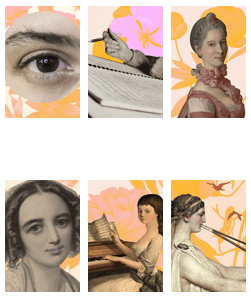CANAL, Marguerite

Marie-Marguerite-Denise Canal (29 January 1890 – 27 January 1978), also known as Marguerite Canal, was a French conductor, music educator and composer. Born in Toulouse, France, Canal was an educator, conductor, and composer specialising in the French style. Canal attended the Paris Conservatory at the turn of the century and studied under Paul Vidal. Paving the way for other women conductors, Canal was the first woman in France to conduct an orchestra in 1917, at the Palais de Glace. She competed multiple times in the Prix de Rome, achieving second place one year for her cantata, Le Poète et la fée (1919), and receiving the grand prize the following year for her Don Juan (1920).
Canal was fortunate in her upbringing within a musical family who supported her in literature and musical education. Additionally, many of her works were consistently published by Jamin, such as her lauded Sonata for violin and piano (1922), meaning that a physical legacy was possible for her in addition to her work as a performer, conductor, and educator. Lack of publishing and biographying of women composers in the past often means the works of talented women have gone missing or are simply lost to time. Despite this, even a quick search for her sheet music proves more difficult to find than her male contemporaries. Mario Facchinetti compared her favourably to Fauré, Debussy, and Duparc - why then is she and her works confined to obscurity?
Further Reading Hamer, Laura, Musiciennes: Women musicians in France during the interwar years, 1919-1939 (2009)
If you would like to suggest a correction or submit further information please send an email to: info@donne-uk.org








